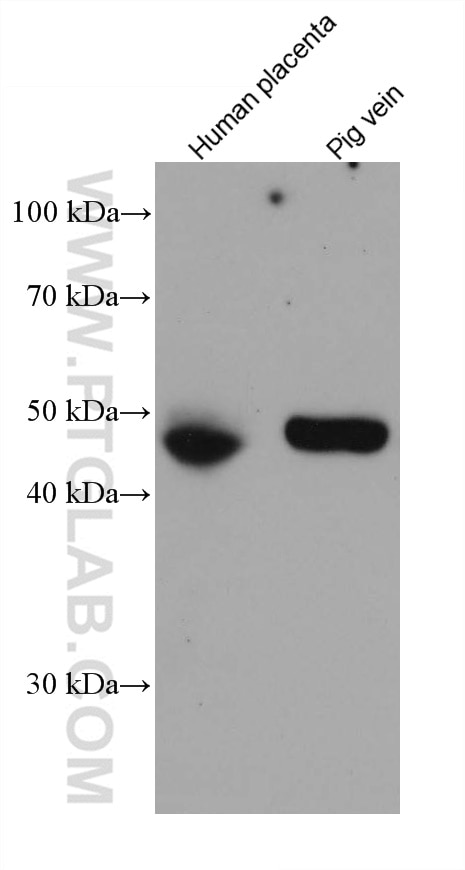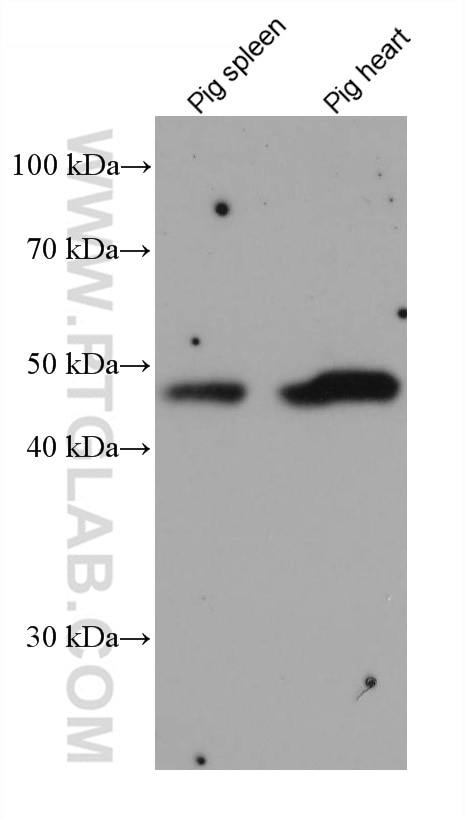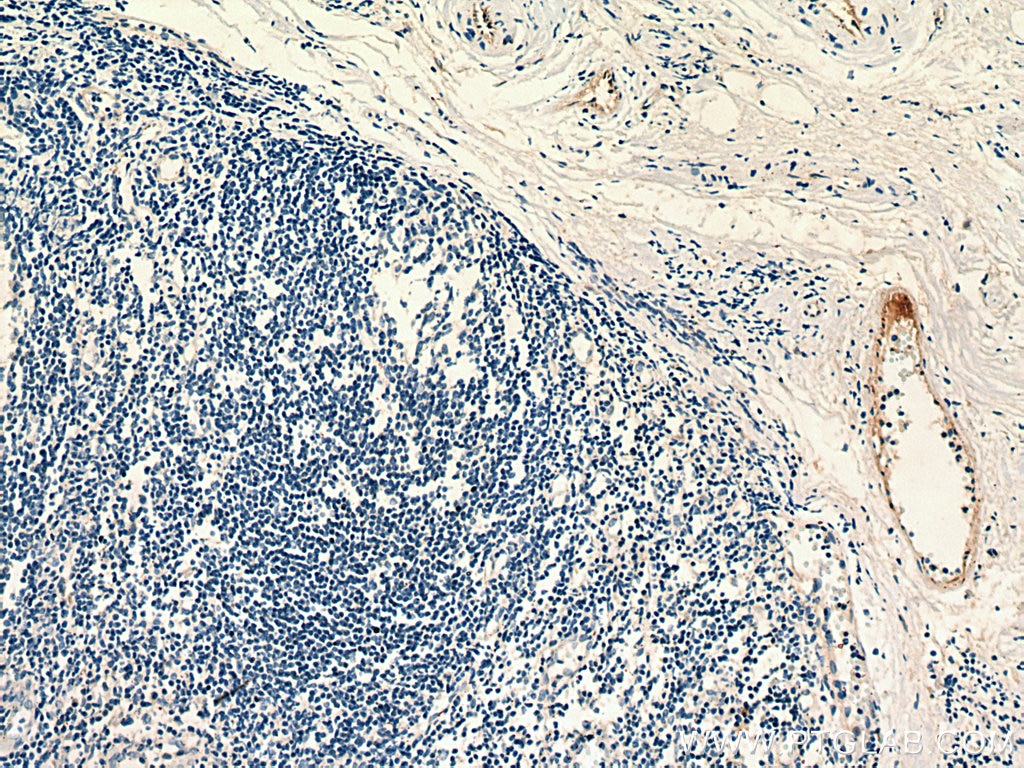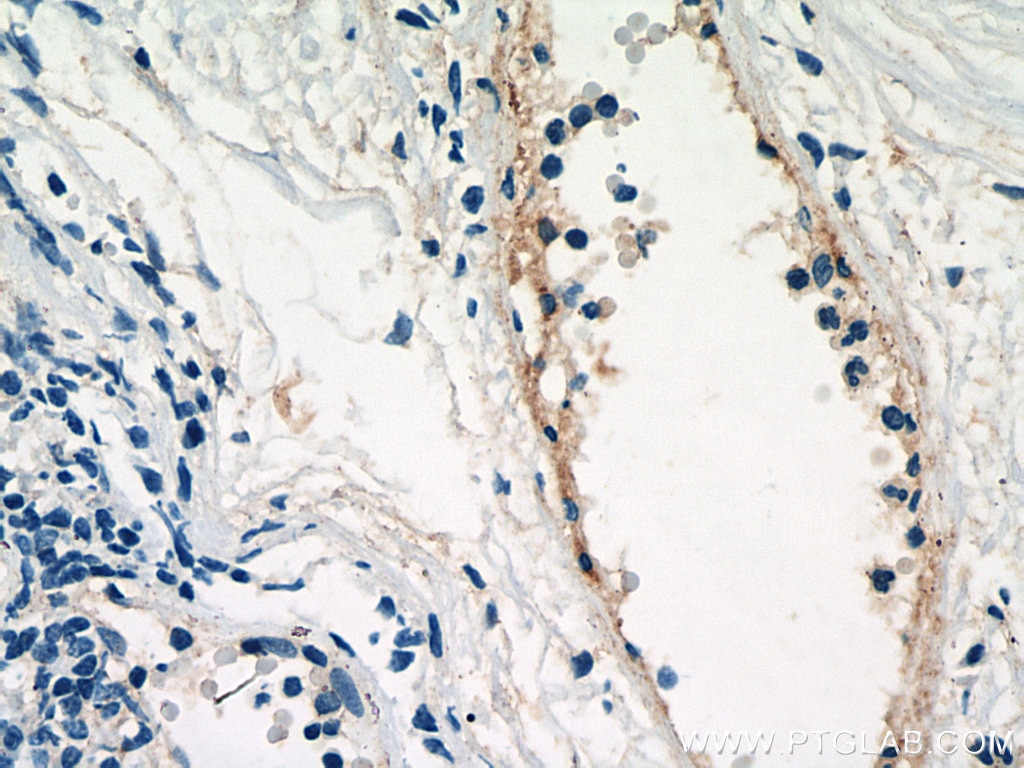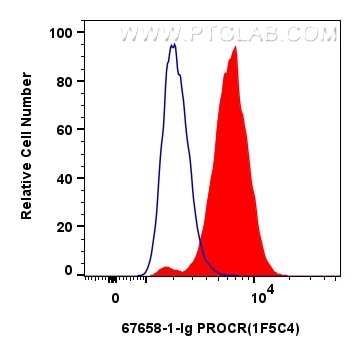Tested Applications
| Positive WB detected in | human placenta tissue, pig spleen tissue, pig heart tissue, pig vein tissue |
| Positive IHC detected in | human tonsillitis tissue Note: suggested antigen retrieval with TE buffer pH 9.0; (*) Alternatively, antigen retrieval may be performed with citrate buffer pH 6.0 |
| Positive FC (Intra) detected in | A549 cells |
Recommended dilution
| Application | Dilution |
|---|---|
| Western Blot (WB) | WB : 1:1000-1:6000 |
| Immunohistochemistry (IHC) | IHC : 1:3000-1:12000 |
| Flow Cytometry (FC) (INTRA) | FC (INTRA) : 0.40 ug per 10^6 cells in a 100 µl suspension |
| It is recommended that this reagent should be titrated in each testing system to obtain optimal results. | |
| Sample-dependent, Check data in validation data gallery. | |
Published Applications
| WB | See 1 publications below |
| IHC | See 1 publications below |
| IF | See 1 publications below |
Product Information
67658-1-Ig targets EPCR/CD201 in WB, IHC, IF, FC (Intra), ELISA applications and shows reactivity with human, pig samples.
| Tested Reactivity | human, pig |
| Cited Reactivity | human, mouse |
| Host / Isotype | Mouse / IgG1 |
| Class | Monoclonal |
| Type | Antibody |
| Immunogen | EPCR/CD201 fusion protein Ag25628 Predict reactive species |
| Full Name | protein C receptor, endothelial (EPCR) |
| Calculated Molecular Weight | 238 aa, 27 kDa |
| Observed Molecular Weight | 49 kDa |
| GenBank Accession Number | BC014451 |
| Gene Symbol | PROCR |
| Gene ID (NCBI) | 10544 |
| RRID | AB_2882855 |
| Conjugate | Unconjugated |
| Form | Liquid |
| Purification Method | Protein A purification |
| UNIPROT ID | Q9UNN8 |
| Storage Buffer | PBS with 0.02% sodium azide and 50% glycerol , pH 7.3 |
| Storage Conditions | Store at -20°C. Stable for one year after shipment. Aliquoting is unnecessary for -20oC storage. 20ul sizes contain 0.1% BSA. |
Protocols
| Product Specific Protocols | |
|---|---|
| WB protocol for EPCR/CD201 antibody 67658-1-Ig | Download protocol |
| IHC protocol for EPCR/CD201 antibody 67658-1-Ig | Download protocol |
| FC protocol for EPCR/CD201 antibody 67658-1-Ig | Download protocol |
| Standard Protocols | |
|---|---|
| Click here to view our Standard Protocols |
Publications
| Species | Application | Title |
|---|---|---|
Signal Transduct Target Ther Protein C receptor maintains cancer stem cell properties via activating lipid synthesis in nasopharyngeal carcinoma. |
